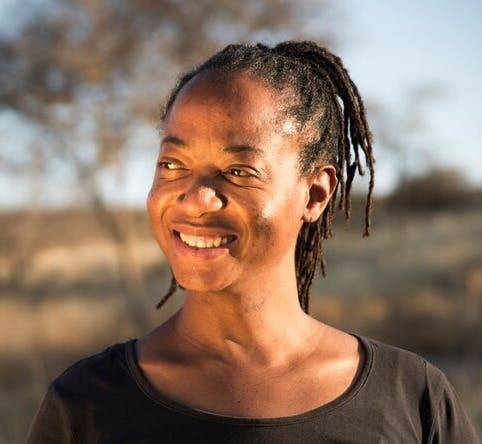Education
MA, International and Public Relations from Cardiff University BSc, Bachelor of Science from Lund University
I strongly believe in human rights, that every single person on this planet should be equally treated and live equally well.
Rinaani Musutua’s passion for social and environmental justice has been a part of her since childhood, when peers called on her to help resolve issues between them during primary school. It was a seed planted at an early age, from time spent as the daughter of a church pastor who kept his door open for everybody and tried to do what he could for his community.
“I strongly believe in human rights, that every single person on this planet should be equally treated and live equally well,” Rinaani says.
Now an adult, Rinaani has dedicated her life to improving the lives of the citizens of Namibia, and has worked for a number of non-profit organizations since 2009. She is currently a Trustee with the Economic and Social Justice Trust, Namibia and a vocal advocate for equity and the rights of Namibians—a role that sometimes can mean putting herself at risk for speaking up against the interests of extractive industries and foreign companies.
“I’m a very outspoken activist in the media. I say quite a lot of things. I do it all the time, and I’m aware that my life could be in danger. I have realized that if we keep quiet, things are going to get worse,” Rinaani says.
The future of the Okavango River Basin is of particular concern to Rinaani, who says that she became involved in the fight to protect it from oil and gas exploration by Canadian company ReconAfrica in September 2021 when she learned that the rights of local people were being disregarded and when she realized what pollution of the local water supply would mean for the whole nation of Namibia.
“It affects all of us in this country. It doesn’t only affect certain people in that region where Recon is exploring for oil. If things go wrong, if the water is poisoned, and people cannot plant their crops anymore, which 70% of the people in Namibia depend on, then those people would have to migrate to urban areas, to the cities and the towns,” she said. “That’s going to mean more pressure on the cities and towns and more crime, more informal settlements, people living in shacks. That’s the biggest reason I’m involved in this campaign.”
As one of five people leading the Economic and Social Justice Trust in Namibia, Rinanni is working on a campaign encouraging the Namibian government to introduce a Basic Income Grant (BIG) for people in the country aged 19 - 59 that would help Namibians struggling with poverty. The Economic and Social Justice Trust, Namibia also works to protect and support the rights of laborers, and to protect land by raising awareness about the activities of foreign companies on Namibian soil. In the past, the Economic and Social Justice Trust, Namibia also worked to try and halt development of a China-owned tobacco plantation in the Zambezi region of northeast Namibia. Though Rinaani says they were not successful in putting a stop to the tobacco plantation, the team at Economic and Social Justice Trust, Namibia remains dedicated to their mission of standing up for the rights of Namibians.
As the mother of a young son, she is driven to her work by a desire to secure what she describes as a “good future” for him and “everybody else’s children and grandchildren.”
“Everything is connected,” Rinaani says, “we are connected to the environment, to our ecosystems. If we destroy it, how are we going to survive?”

